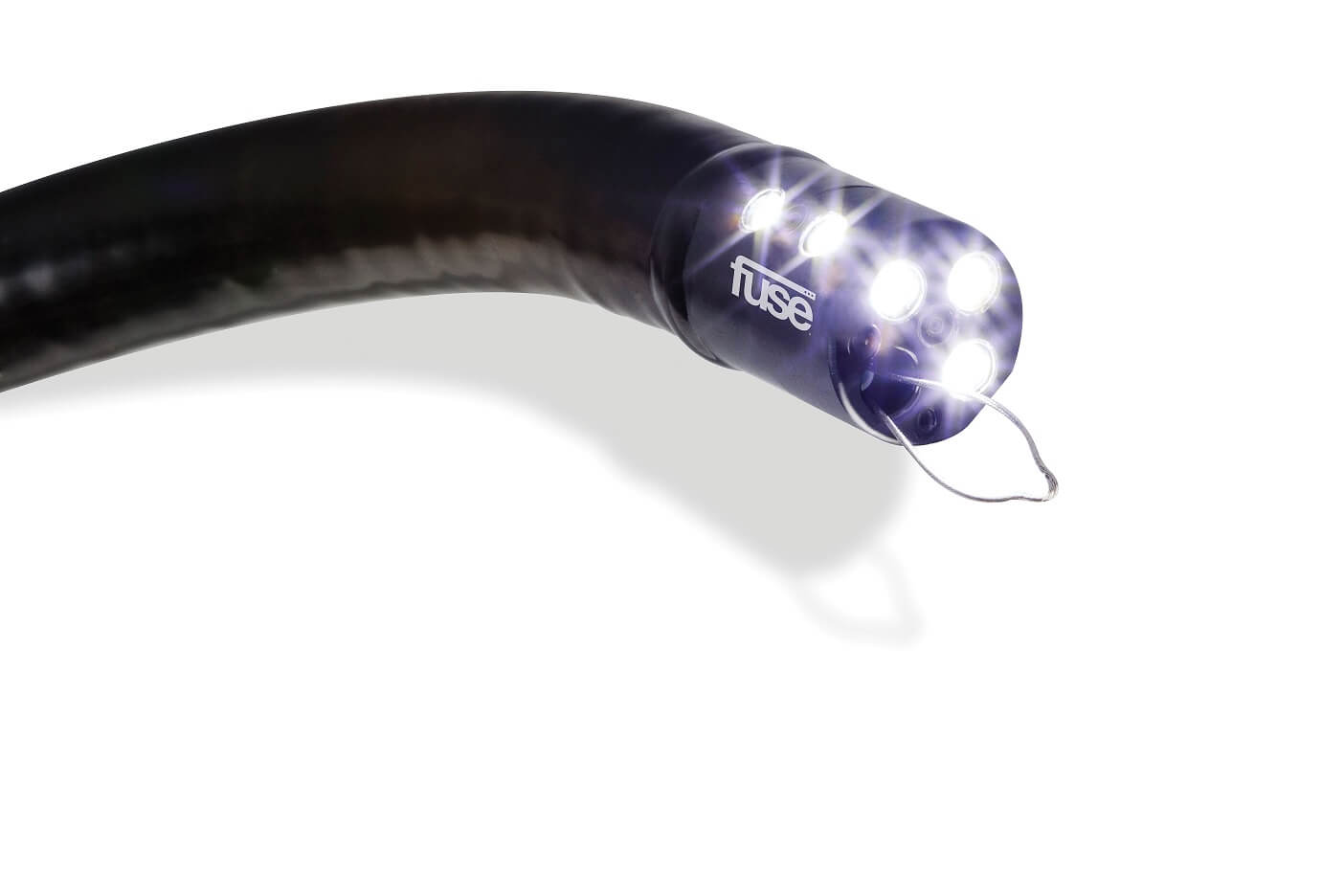Endochoice, which acquired Pir Medical from Caesarea at the beginning of the year, won FDA approval for an endoscopy device that takes photos with three cameras and achieves a 330 degree field of view. A clinical study conducted at Rambam showed that the system detects 71% more precancerous polyps compared to the existing equipment

Last week the EndoChoice company from the USA reported receiving FDA approval for the new Fuse system.
Three small cameras are installed at the end of the Fuse system colonoscope, compared to a single camera in a standard colonoscope. Using these three cameras, the examining doctor can have a field of view of 330 degrees - double the field of view of the most advanced colonoscopy systems available today, which allow viewing of a maximum of 170 degrees.
According to the company, due to the anatomical structure of the digestive system in general, and the colon in particular, where there are many folds, many important findings "disappear from view", while the new Fuse™ system reveals a much larger number of them.
The Fuse system was developed in Israel by Pir Medical from Caesarea, which was merged at the beginning of the year into EndoChoice from the USA. The company's research and development center remained in Israel and was even significantly expanded following the transaction.
The system was tested in a series of experiments. Among others at Ichilov Hospital in Tel Aviv and Carmel and Elisha Hospitals in Haifa.
The last and largest of them all that was just reported was a multicenter clinical study, with the participation of leading researchers in the field of gastroenterology from the USA, Europe and Israel. The research was led by Professor Ian Gerlenk from the Faculty of Medicine at the Technion, director of the ambulatory department and a senior physician in the gastroenterology department at Rambam Hospital and Elisha Hospital, Haifa.
The study included 185 patients who underwent two colonoscopy examinations each, some first underwent a normal colonoscopy and immediately after that a colonoscopy with the Fuse system by the same doctor, and some the other way around. The decision as to which test they would undergo first was random. The results of the study showed that the traditional endoscope missed 42% of precancerous adenoma polyps, while the new Fuse system missed only 8%. After 28 polyps were found by the traditional endoscope, the Fuse system found 20, that is: 71% more.
Prof. Gerlenk explains: "The findings we received are extremely convincing and support the data of previous studies, which indicated the limitations of traditional endoscopes. The innovative technology of "EndoChoice" significantly improves the effectiveness of this important test for preventing cancer and saving lives."
Mark Gillritt, founder and CEO of "Endochoice" adds: "The FDA approval given to the system these days brings us another step closer to our goal, which is to give doctors tools so that they can give the patients treated by them the best care."
The company will soon submit an application to market the technology in Israel.
For the clinical study summary
